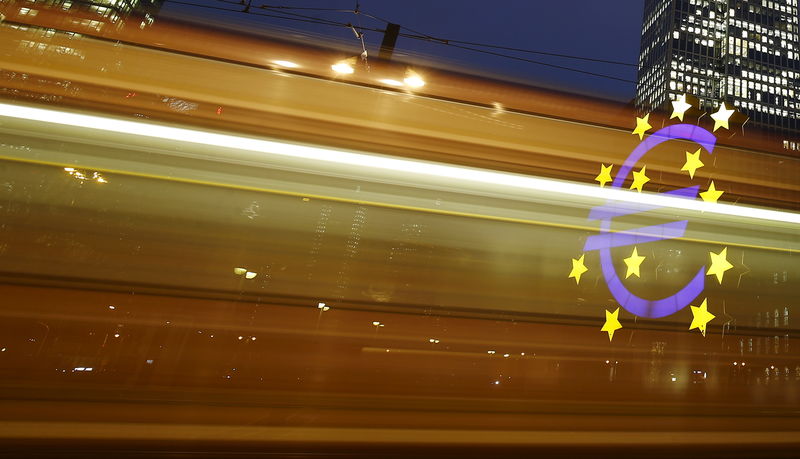(Bloomberg) -- The euro area is showing no signs of a meaningful economic rebound, with Italy on the verge of recession after the populist government picked a fight with European authorities over spending plans.
IHS Markit’s Purchasing Manager’s Index for manufacturing and services in the 19-nation bloc fell to 52.7 in November from 53.1 in October. While the reading exceeded an earlier estimate, it was the worst since September 2016 and suggests only a marginal pickup in the pace of growth to 0.3 percent in the fourth quarter, according to the report.
“The region remains stuck in a soft-patch,” said Chris Williamson, an economist at IHS Markit. “The survey responses highlighted intensifying headwinds of Brexit and trade-war worries, a struggling autos sector and rising uncertainty regarding the economic and political outlook.”
The slowdown is starting to affect the labor market. Employment expanded at its weakest pace in almost two years in November, with Germany, France and Ireland faring particularly poorly.
The European Central Bank will need to confront signs of falling growth momentum and the threat of a triple-dip recession in Italy, the region’s third-largest economy, when policy makers meet on Dec. 13.
They are expected to cap their 2.6 trillion-euro ($3 trillion) asset-buying program with a pledge to maintain a significant degree of stimulus through reinvestments of maturing bonds.
Policy makers have argued the euro-area economy is returning to its normal pace of expansion, with inflation pressures starting to build. IHS Markit said companies reported elevated cost pressures on the back of higher wage payments and more expensive fuel.
Still, the slowdown that started in manufacturing is now spreading into services. Business optimism is at its lowest level since late 2014, said Williamson, adding to “downside risks for growth as we move into 2019.”
